Here’s How
Chapter Five
Look, policymaking isn’t easy and our process isn’t perfect. But it is ours and though we’d sometimes prefer it not to be true, it is a reflection of us.
Can politics be corrupt? Of course. Because humans can be corrupt.
Can the system be broken or slow? Absolutely. We can be broken and slow at times.
But our system – our politics? It’s not static. It can be pushed and prodded, tweaked and improved. It can be a tool to better our world. And, at times, it can be a tool that makes it worse.
Whether you believe government will save us from our ills – or is what ills us – it’s the political process that provides us with the space to have this debate and decide on a direction that the majority of our peers can live with.
Just ask Mike Farnworth.
“You look around the world at what’s going on and you do sense that there is a fragility to our democracy. It’s something that needs to be protected, needs to be nurtured.”

Mike hasn’t just served as a senior cabinet minister in the BC government, he’s also a passionate advocate for democracy, having worked in war-torn countries around the world fighting to implement an imperfect process just like ours.
“We come in with our long history of democracy in this country, and a way of doing things. And you meet people for the first time, and you work with them, and you say, ‘you can do this, this, this and this’. And then you suddenly realize, ‘hey, wait a second. That approach may not work here for a variety of reasons’. What’s important though is the principles (of democracy). Well, what does that look like? It can vary from place-to-place, it can vary in different cultures. But what’s important is not how it’s done, but that it is done.”
However, Mike argues that for democratic principles to be upheld, they need to be understood and respected.
“There needs to be a greater awareness and understanding of exactly what (democracy) means. The rules that we have in our chamber, the rules that we have in the House of Commons in Ottawa? This is the fundamental basis upon which our institutions rest.”
As you know, Sam Sullivan is Mike Farnworth’s political opposite and his sometimes foe, but Sam agrees we need a better respect for our democratic system.
“Most of the time these decisions in human history have been made by blood and thuggery. That is the human reality of our government over time. It’s only in the past few hundred years that we got to a place where the government can change and no one dies. So, this is a huge achievement, especially for a guy like me who doesn’t want to die! We love this idea that we have a civilized – maybe not very pretty – but a system where we talk things through and we have rules that we all agree are the rules. And that results in government. And that results in decisions. A small group of people is able and is credible and legitimate to make those decisions for everybody.”
It’s for this reason, Mike argues, “Of all the systems out there, this is still the best system we have. And you can make a difference. There are many examples around the world of young people who make a difference.”
In other words, if you reject a politician or a party or how elements of our system work: No problem! But get involved and work to change it; don’t just throw out the baby with the bath water. We’re lucky to have what we have and we mustn’t take it for granted.
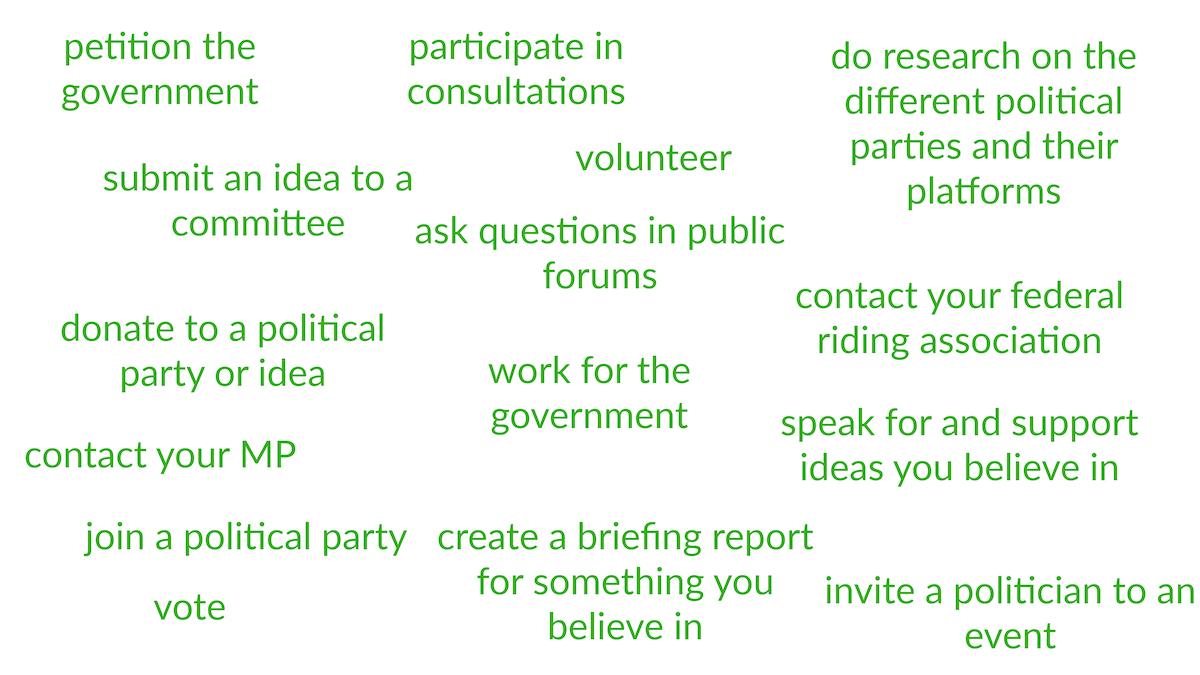
As Mike reminds us, “It’s extremely important, when you turn 18, to vote. At the same time, if there’s something you’re interested in, get involved with a group that’s involved in that. Be an advocate, go talk to your friends, talk to you parents, talk to your local elected officials, talk to your city councillors. Those are all ways in which politicians will understand that people care about this stuff. And if there’s something you passionately believe in, get involved with it and stick with it. You’re the future and you cannot go wrong by being involved in something you believe in.”
Just know that we can’t expect our ideas alone to win the day. We must remember that we’re part of a system and every idea must connect with, work with and even overcome the ideas put forward by our peers from across the country.
It’s why we can’t skip past the process – even when others think we can, or should.
Over to former prime minister Kim Campbell for an example:
“I had a press conference (to announce my party’s platform) And one of the journalists said, ‘yeah, but what do you really stand for?’ And, I thought, you actually just heard a pretty dramatic statement of what I really stand for, but you just don’t get it (the political process). And I think process is something that’s very hard to get people excited about. But the substance, the outcome, is very much a reflection of the process.”
It’s true: If you haven’t already realized by now, process matters. But don’t just take Kim Campbell’s word for it. The late Ian Waddell recalled a time when he was a government minister and overlooked the importance of process.
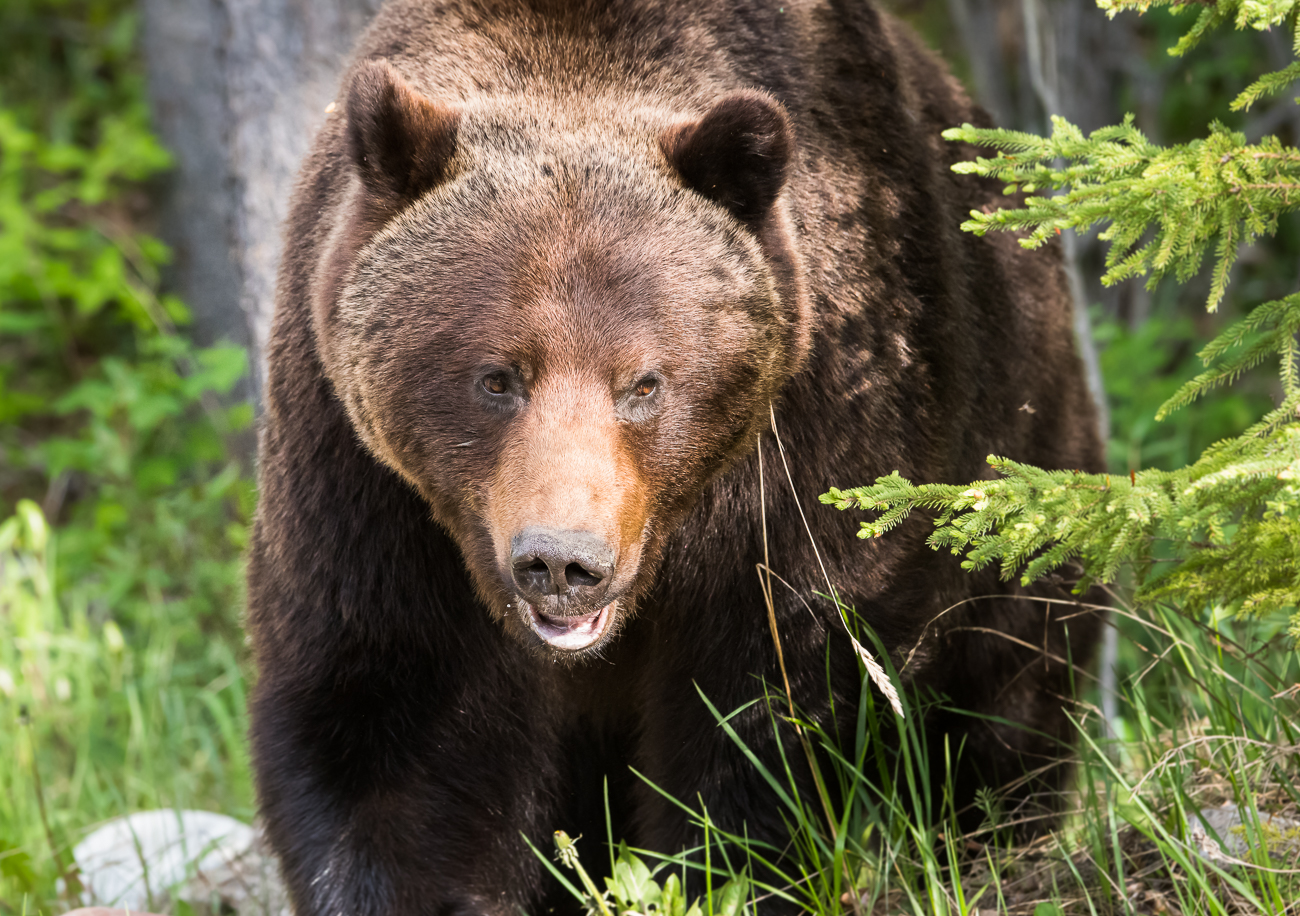 “I put a freeze on grizzly bear hunting and I didn’t win the battle. I got defeated. And I should have won it! But I didn’t do my preparatory work in government to get people on my side, to build support.”
“I put a freeze on grizzly bear hunting and I didn’t win the battle. I got defeated. And I should have won it! But I didn’t do my preparatory work in government to get people on my side, to build support.”
Art innovator Jerry McGrath believes that’s why we need to better appreciate the importance of process not just in politics, but in our own lives as well.
“Process matters because it creates the space for other smart people to contribute.”
Jerry tells us how we design our ideas – how we advocate for our ideas – often matters as much as our ideas.
“When we assume we know what the right path is and we design for that, we’re not opening ourselves up to being wrong. When we create a process that allows for contributions from different people, then we’re actually open to the fact that our knowledge is incomplete. Having the economist, the artist and the scientist in the room? When you have all those people in the room and you’re open to their contributions, you get a much richer picture of what’s possible. So, for me, process matters because anyone who thinks they know the path from A to B is probably going to have a mediocre outcome. But anyone who believes that B matters and that any way of getting there is important is probably going to be able to invite more people to participate and get a better outcome in the end.”
Which makes sense. The problem is, Jerry adds, we usually limit our processes – we limit the voices we engage.
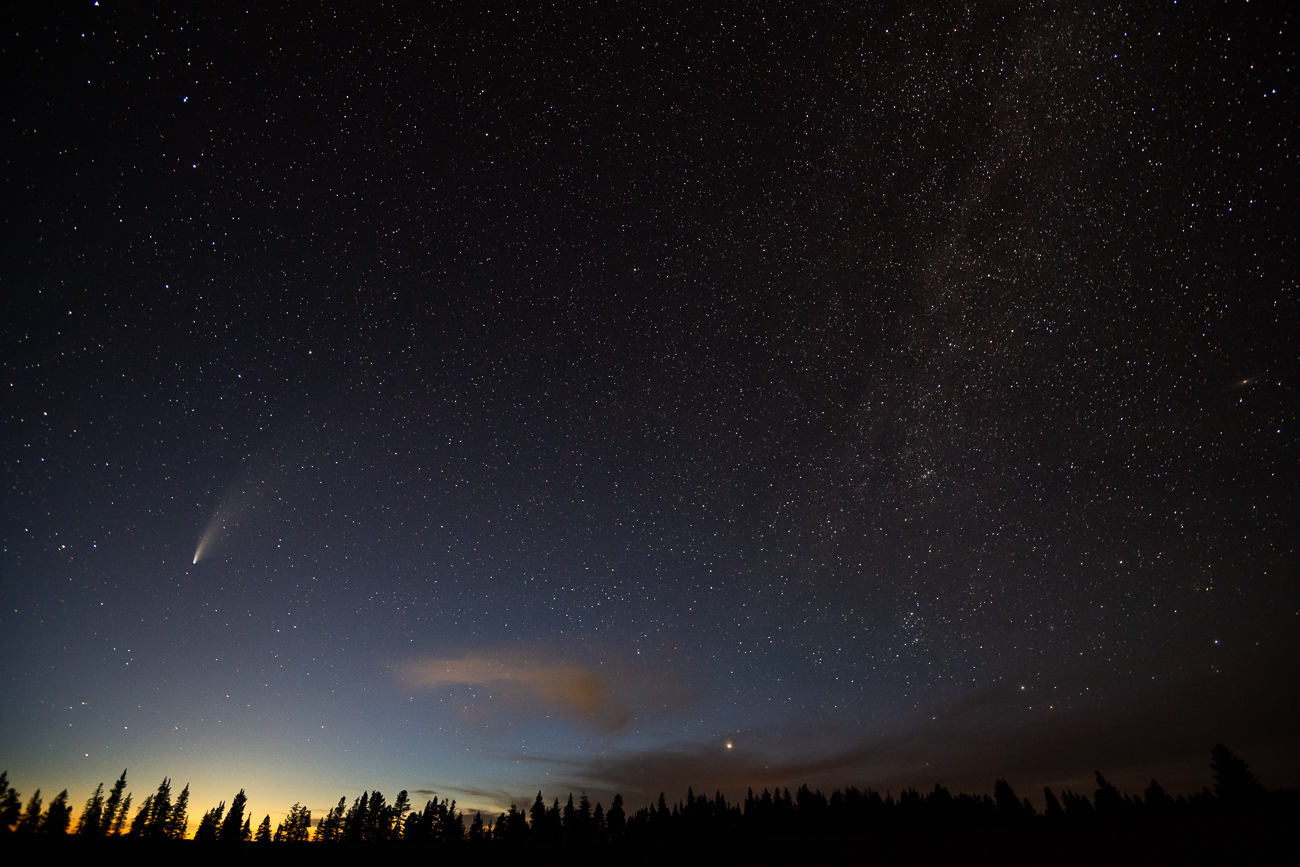 “What everyone needs to understand in their work is that how other people feel in a particular situation that you create matters a lot more than what you’re trying to do. When we all share a particular feeling – a passion, a curiosity, a sense of awe, a sense of wonder – then that’s a shared moment that allows each of us, regardless of where we’re coming from, to participate positively to the final outcome.”
“What everyone needs to understand in their work is that how other people feel in a particular situation that you create matters a lot more than what you’re trying to do. When we all share a particular feeling – a passion, a curiosity, a sense of awe, a sense of wonder – then that’s a shared moment that allows each of us, regardless of where we’re coming from, to participate positively to the final outcome.”
For that reason, multi-platform artist-storyteller Maggie MacDonald tells us we should live by these words:
“Nothing for us without us. So, not just creating a program that’s, say, from a settler community made for Indigenous communities. Nothing for us, without us. Definitely include people when you’re creating a program or creating a project. Include the people you want to talk to in the project from day one, so you’re not just putting your own perspective on something.”
The long-time head of the Canadian Parks Council, Dawn Carr, agrees.
“Process is often – as challenging as this can be – more important than the product, or the outcome, because the process determines what the final outcome and decision will be.”
Dawn adds, “Embrace the tension, embrace the ambiguity, and really start to get experience in what collaboration looks like. It’s hard, hard work and it can take a long time. But that hard work of having conversations and truly understanding what collaboration looks like is critical if we’re actually going to be successful in achieving these long-term outcomes.”
Dawn’s not wrong, but let me play Devil’s Advocate for a moment.
For a long time in our society, we valued outcomes over process and that, in many ways, led to some of the problems we face today. To compensate, we’re increasingly valuing process over outcome – almost at the expense of outcomes.
And as biodiversity advocate Harvey Locke reminds us, “This idea that we’ll continue to turn little dials and fine tune the radio because there’s a little bit of fuzz, ‘well, if we just get it right, it will be just fine’? Everybody knows that’s nonsense.”
Good point.
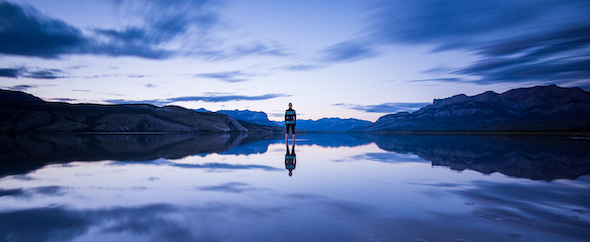 The erosion of our democracy – the increasing challenges facing people and nature – is partially born out of frustration with processes that aren’t delivering outcomes fast enough. Or, in other words, we might be swinging too far the other way, forgetting that outcomes still matter, especially when we can’t all agree on which process is the right process.
The erosion of our democracy – the increasing challenges facing people and nature – is partially born out of frustration with processes that aren’t delivering outcomes fast enough. Or, in other words, we might be swinging too far the other way, forgetting that outcomes still matter, especially when we can’t all agree on which process is the right process.
As the former mayor of Vancouver Sam Sullivan argues, “You may have this very pristine view of how the world should work, but that’s not going to work. It’s not going to get you anywhere. You need to get things done.”
Indeed, some who advocate for process don’t always do a great job of including dissenting voices from different parts of the political spectrum. Sometimes, even, they neglect to engage those who believe outcomes still matter, urgently. When this happens? The so-called better processes fail to actually yield better results for all of society and, instead, just reinforce divisions.
So, what does all of this mean then?
Well, process does matter. A good process will yield better results. But equally, we can’t forget the urgency of the issues we’re facing, nor the divided world that we live in. And against this backdrop? Realism also matters. Outcomes still count.
For this reason, we all need to heed this advice from artist Maggie MacDonald:
“Don’t let the perfect be the enemy of the good. So, that’s the idea that if you spend all of your time trying to do something totally perfectly – you’re in your process and you’re honing the process and you’re trying to make it absolutely perfect – then you might not ever finish the product and get something out there that’s pretty good. Put in the effort, but don’t wait for it to be absolutely perfect before you go ahead.”
That’s a critical point and so too is this insight from former Alberta cabinet minister and author of Teaching the Dinosaur to Dance, Donna Kennedy-Glans.
“Just do. I think you learn so much in doing. And then if it’s not right, you don’t do it anymore. You can talk about it a lot, but I think we’ve got to do.”
Creator and coach Shawn MacDonell agrees, telling us that good process isn’t always about perfect planning, but also wild experimentation.
 “Sometimes you just have to live the story. How? Well, think outside the box. Kill the box! Forget there was a box.”
“Sometimes you just have to live the story. How? Well, think outside the box. Kill the box! Forget there was a box.”
What does that mean exactly? Well, for scientist Sandra Nelson, she says it means “listening to my gut instinct, but not relying on it and questioning it all the time.”
And Cumming School of Medicine’s Dr. Aleem Bharwani says it also means not forgetting that “citizen-led diplomacy comes down to the principle of being an honest broker. And the goal should always be to facilitate honest, respectful dialogue.”
In other words, just strive to be a good human, right news anchor Dawna Friesen?
“Be kind and thoughtful and open to new ideas.”
It’s why creator Shawn MacDonell reminds us that the best processes start with this:
“Whatever makes you happy? Do that. Because if you do that, and then the other person does that, and the other person does that, then were all happy. It’s not a secret. It’s not a mystery. It’s not rocket science here. Just don’t be sad. Try really hard to not be sad, and encourage other people to also not be sad, and we will be in a much better place. If you’re happy, the world’s going to be a better place.”
Don’t believe him? Look to nature, Shawn argues.
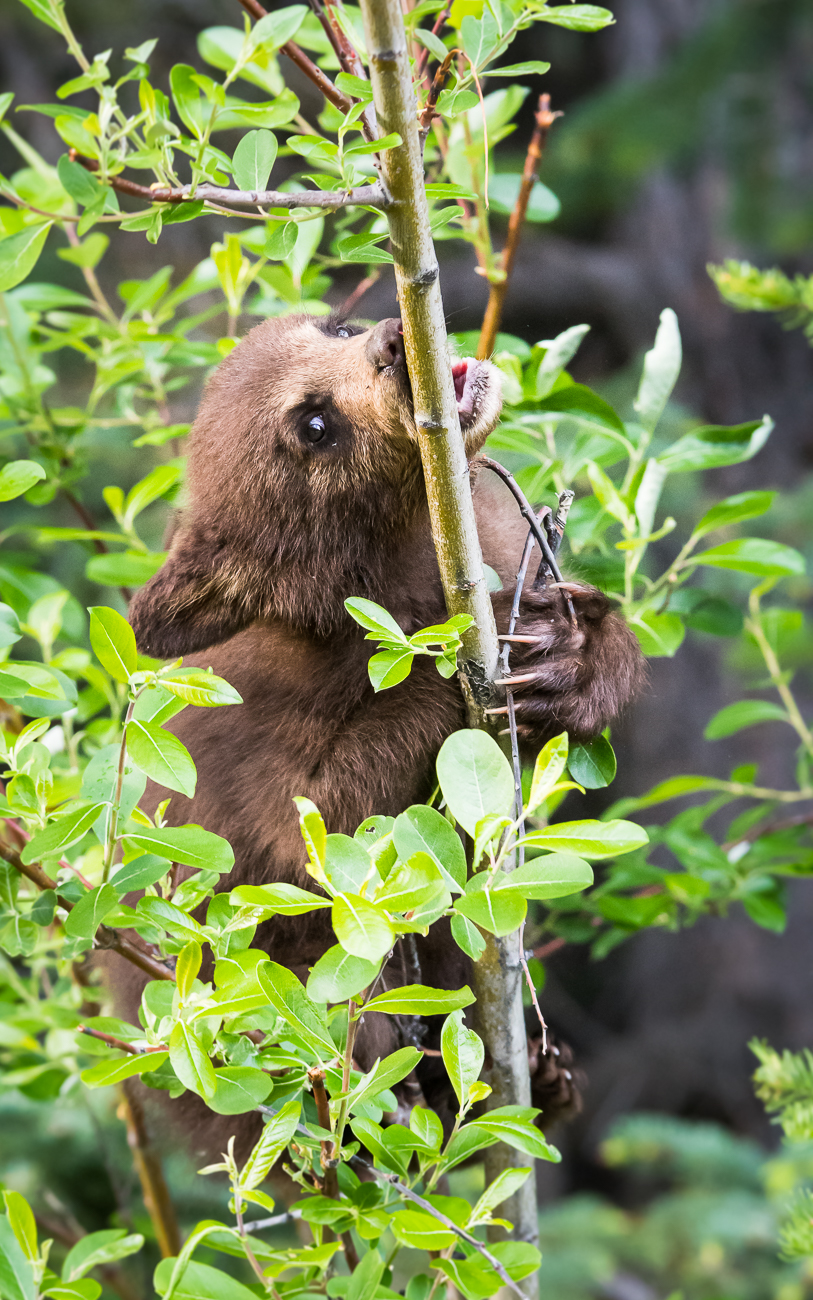 “One of the ways that nature teaches us to be more real, to do what you love, is just sitting and looking at animals. I mean, they’re doing what they love! They’re not doing anything else. They need to eat a salmon out of the river? They’re going to get a salmon out of the river. They’re just doing it. They’re not building a cabin and then saying, ‘oh, the cabin’s not insulated enough, we have to build a better cabin, so we need a bigger cabin’. They’re not thinking of all these ways to screw up this land. We’re the only ones that are doing that. Nature is doing what it loves every day.”
“One of the ways that nature teaches us to be more real, to do what you love, is just sitting and looking at animals. I mean, they’re doing what they love! They’re not doing anything else. They need to eat a salmon out of the river? They’re going to get a salmon out of the river. They’re just doing it. They’re not building a cabin and then saying, ‘oh, the cabin’s not insulated enough, we have to build a better cabin, so we need a bigger cabin’. They’re not thinking of all these ways to screw up this land. We’re the only ones that are doing that. Nature is doing what it loves every day.”
So, let’s heed Shawn’s advice – let’s heed nature’s advice:
Be a good human and work to create real relationships with other humans. And with nature. Listen to what nature has to say and listen to what other humans have to say.
And when the time is right to make our voice heard? We need to remember to use it to empower all voices and all communities – both inside and outside of our work, inside and outside our system.
After all, we do need more people to find their voice. When we all learn to use our voices effectively, our ideas improve and grow – and so too does our ability to better balance the needs of people and nature.
This is how support is built and coalitions are created that can unite unlikely allies and take a policy idea all the way to royal assent.
And, sure, sometimes the pace of change is slow. That can be frustrating, even for a cabinet minister like Mike Farnworth.
“Absolutely. But what’s important is you know that it’s happening and what you want is to be there long enough to see it come to fruition. Democracy works, but it just works slowly. Government works, but it can often take time. But it does work.”
Which sometimes we forget, adds the late Ian Waddell.
“You think, ‘well, why was it so long?’ It takes a while to build on an issue. You say, ‘it’s going to take 20 years!’ But what are you going to do?”
Not quit. Certainly, Ian Waddell never quit on what he cared about.
Plus, as Sam Sullivan points out, “It’s a good thing that things aren’t easy. Things shouldn’t be easy. Because if it’s easy to put things through, some pretty bad things can come through as well. So, the system is meant to put a break, deliberate and consider, ‘is this the right way to go?’ Because there’s a lot of great looking ideas that are terrible.”
True!
It’s why, when we get frustrated, we need some perspective – like this moto from biodiversity advocate Harvey Locke:
 “If it takes me twenty years to do something? That’s okay, as long as it happens. And if I never get any credit for it happening? That’s okay, as long as it happens.”
“If it takes me twenty years to do something? That’s okay, as long as it happens. And if I never get any credit for it happening? That’s okay, as long as it happens.”
Indeed, journalist and community builder Salimah Ebrahim reminds us that the pace of change doesn’t matter, it’s the bigger arc of history that counts.
“As much as I’m burning with, and a lot of young people are burning with, the desire to see everything change immediately, I think realizing what you can do over a few months, over a few year and over a decade to move the conversation forward? It’s amazing.”
Salimah adds, “When you look at history, of injustice that has happened, all of this is still really, really early on and it’s really, really complicated. So, no one is going to be able to come up with a perfect solution in the beginning. I think what we hope is that you’re going to push things forward a little bit down the road until they become the status quo and we can really make change. And sometimes history looks like that, and all of a sudden there’s a fundamental sea of change. We’ve seen this on a range issues around human rights around the world. But there’s a different type of urgency with the environment.”
Which means we need to channel urgent patience – we need to be realistic optimists.
To that end, Salimah says, “The people that can think in zigs and zags, who can think horizontally, are the ones that are going to be able to use this toolbox of ideas and come up with solutions.”
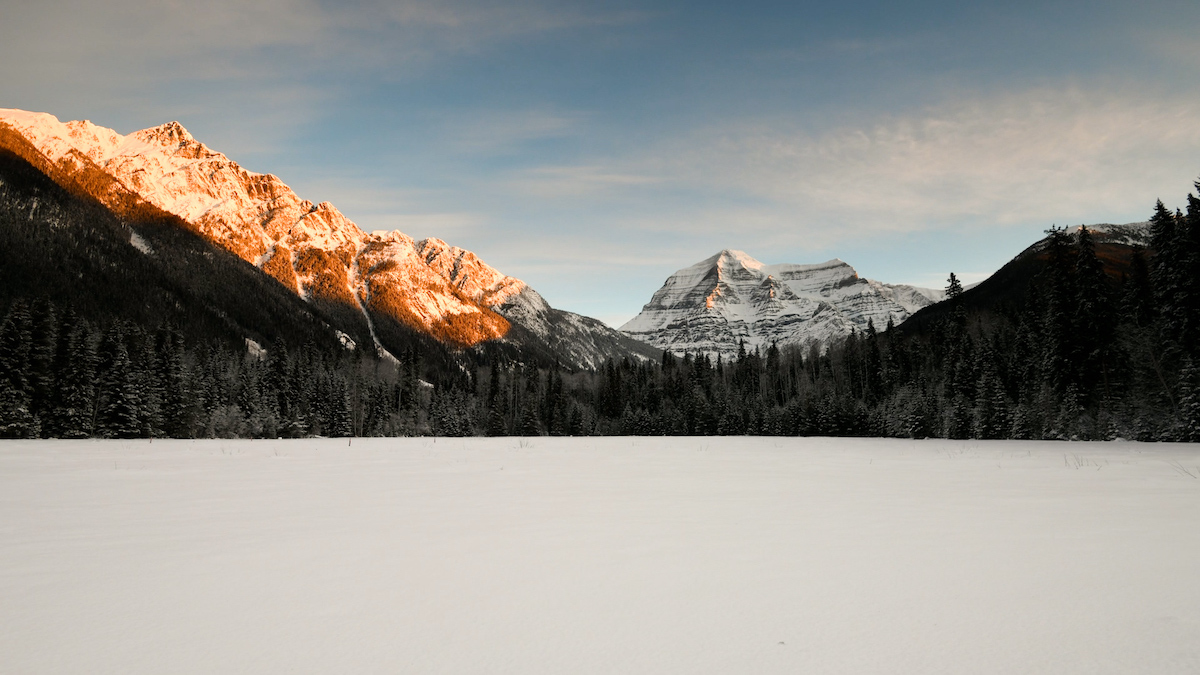 We all have that ability within us and, as Mount Robson’s Elliott Ingles reminds us, “we’ve got one shot, you know? There’s one planet. We’re all part of it. We’re all in it together. And I think one person makes a difference.”
We all have that ability within us and, as Mount Robson’s Elliott Ingles reminds us, “we’ve got one shot, you know? There’s one planet. We’re all part of it. We’re all in it together. And I think one person makes a difference.”
In Canada, depending on who you are, your perception of that reality will vary. Your faith in being able to impact our system will differ. And yet for all its successes and failures – its opportunities and its weaknesses – our system is just that: It’s ours to destruct and create, to shape and influence.
So, as youth advocate and author Jane Thompson urges, “Vote. Every single time you have an opportunity to vote for an elected official? Get yourself out there and do it. People died for the right to vote.”
For whether we realize or not – take advantage of it or not – we’re more than the authors of our own story. Through this process, we’re the contributing authors to a much bigger story: The history of our generation.
 “Say one of you was an architect in the 1400s, in a European town, and the local decision makers asked you to design a new cathedral. You would begin that task knowing you would not live to see it completed. It might be a grandchild of yours, or a granddaughter of a neighbour, that completes the final renderings for the spire 40, 50, 100 years hence. There are cathedrals that began in 1200 and got completed in the 1400-1500s. So, generations hence. If someone reading this was a stone mason in the 1400s, laying the cornerstone or perhaps the foundation blocks of the new cathedral, they would do so knowing that a grandchild of theirs in the same trade years later could be building on top of the work they did. So, what they would do is be extra careful – to use good materials and to build solidly. Because long after they passed away, someone that they cared about would need to rely on a strong foundation as, maybe, they worked on the third floor or they worked on the arches.
“Say one of you was an architect in the 1400s, in a European town, and the local decision makers asked you to design a new cathedral. You would begin that task knowing you would not live to see it completed. It might be a grandchild of yours, or a granddaughter of a neighbour, that completes the final renderings for the spire 40, 50, 100 years hence. There are cathedrals that began in 1200 and got completed in the 1400-1500s. So, generations hence. If someone reading this was a stone mason in the 1400s, laying the cornerstone or perhaps the foundation blocks of the new cathedral, they would do so knowing that a grandchild of theirs in the same trade years later could be building on top of the work they did. So, what they would do is be extra careful – to use good materials and to build solidly. Because long after they passed away, someone that they cared about would need to rely on a strong foundation as, maybe, they worked on the third floor or they worked on the arches.
“Someone who’s 14 or 18-years-old thinking about when they’re 55 or 65? It’s just so far off and it’s hard sometimes to make things matter. But the fact is that each of us, consciously or not, is building upon – and benefitting from – things that other people did. So, cathedral thinking? When you’re laying that foundation, or you’re doing the initial design and you know that you won’t likely complete it, what you’re doing is keeping the living generation tethered to the future. But you’re also getting involved in unfinished work. And I think we should all be involved in unfinished work, knowing that, at some point, you hand it off.”
– Rick Antonson | Author